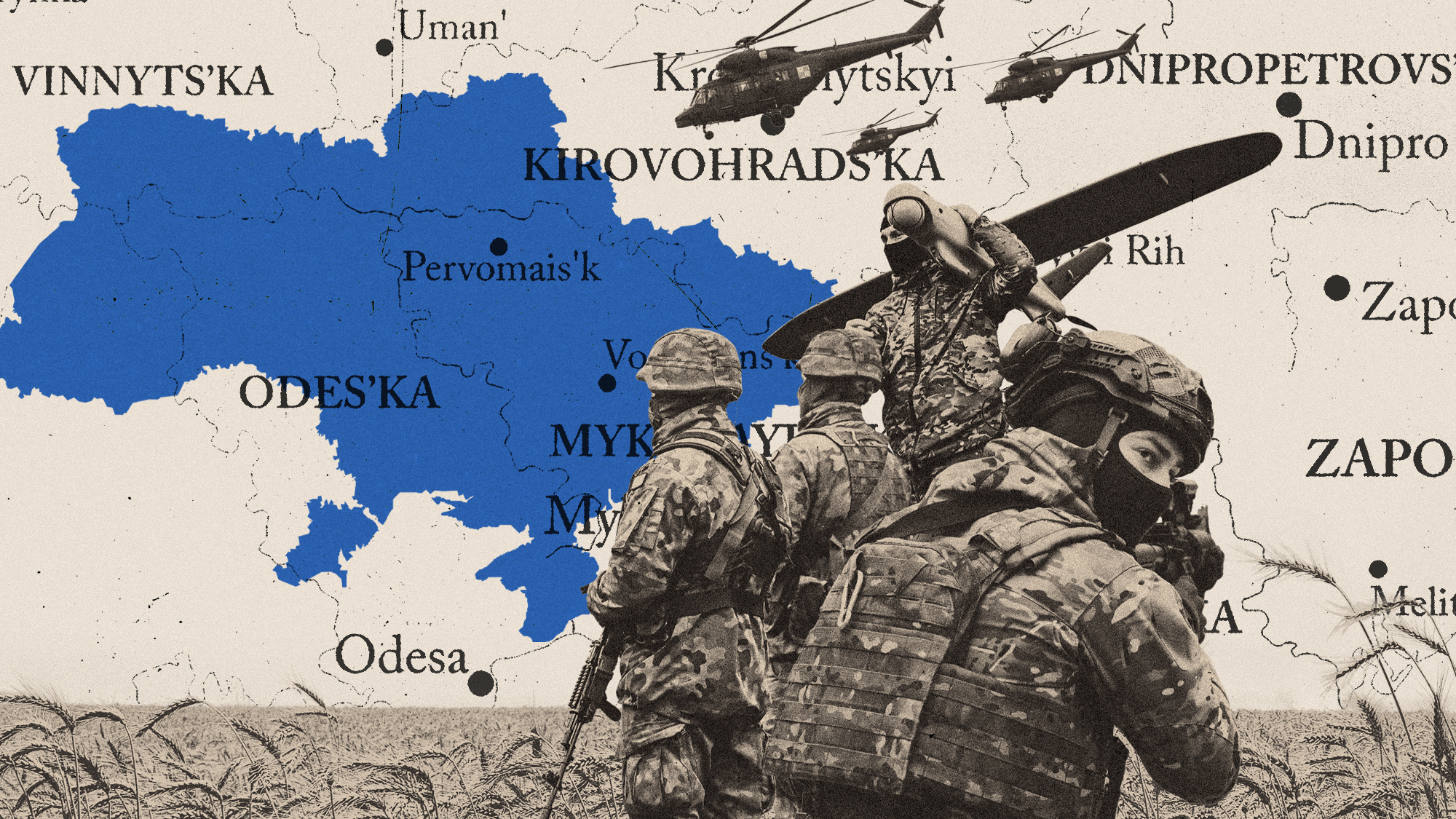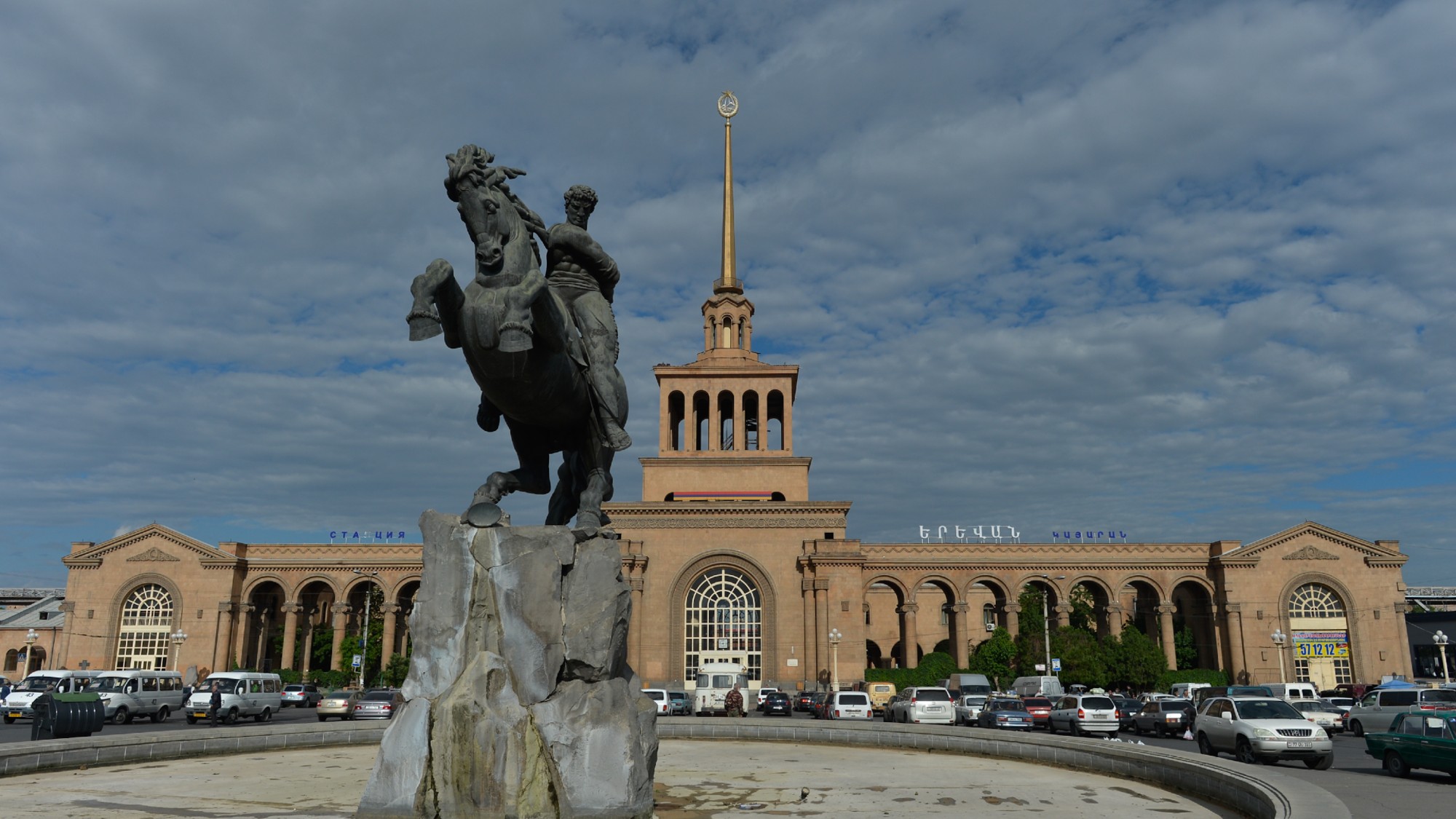Will European boots on the ground in Ukraine actually keep the peace?
Pressure is growing for Western allies to step up if Trump pulls plug on support for Kyiv

A free daily email with the biggest news stories of the day – and the best features from TheWeek.com
You are now subscribed
Your newsletter sign-up was successful
The UK will "play a full part" in any future peacekeeping initiative in Ukraine, said Keir Starmer.
After Donald Trump ruled out sending US troops to keep the peace, with one member of his team saying they should "get the Poles, Germans, British and French to do it", the prime minister told Politico that European states will "need to do more".
What did the commentators say?
President Volodymyr Zelenskyy insists that any deal with Moscow must be "followed up" with "meaningful security guarantees" from Kyiv's Western allies, and pressure is growing for European nations to step up.
The Week
Escape your echo chamber. Get the facts behind the news, plus analysis from multiple perspectives.

Sign up for The Week's Free Newsletters
From our morning news briefing to a weekly Good News Newsletter, get the best of The Week delivered directly to your inbox.
From our morning news briefing to a weekly Good News Newsletter, get the best of The Week delivered directly to your inbox.
Bringing Ukraine into Nato "might take years", said Viktoriia Lapa, from Bocconi University in Milan, on The Conversation, so "European countries should consider deploying troops to Ukraine as a security guarantee for this interim period".
Any security guarantees offered to Ukraine are "likely to require foreign troops to credibly enforce a ceasefire", said Doug Klain from the Atlantic Council. So European leaders should "demonstrate their readiness to deploy forces" on the condition that Washington "backs them" with the "logistical, military, and political support" required to "make such an operation feasible".
Speaking to The Telegraph, Hamish de Bretton-Gordon, a former British tank commander who served in Bosnia and Cyprus, said Russians and Ukrainians would be "very unlikely" to attack British peacekeepers because "that would just set in motion something they absolutely do not want".
If they are deployed, it's "very unlikely" that European troops would be stationed along the frontline itself, said Kyiv Independent. They'd more likely be "further back", acting as a so-called "tripwire force", to make any further Russian aggression in Ukraine "immediately come at the cost of direct conflict with Nato".
A free daily email with the biggest news stories of the day – and the best features from TheWeek.com
But the idea of putting European boots on the ground in Ukraine is "deeply problematic", said Samuel Charap in the Financial Times. While the UN is a "neutral third party" that can "arbitrate disputes and be an honest broker", given its "extensive support" for Ukraine, Europe is "anything but a neutral third party", so "almost by definition", European states "could not lead a peacekeeping force in Ukraine".
European leaders "appear to be putting the cart before the horse". So "they must first decide" if they're "willing to commit to go to war" with Russia "if it invades again", because "deploying a tripwire force" before choosing what exactly the wire would trip makes no sense.
What next?
Although Starmer has spoken to Emmanuel Macron about the prospect of a "Franco-British joint force", said The i Paper, UK officials have "played down the prospect".
Richard Dannatt, former head of the Army, said that 5,000-10,000 soldiers would be needed and our forces are not "large enough to do that with everything else that it's doing currently".
De Bretton-Gordon told The i Paper that any peacekeeping mission would place a huge amount" of pressure on the Ministry of Defence budget, and would leave Britain able "to do nothing else".
Putting British "boots on the ground" would be "controversial for Starmer at home", said Politico. Asked if he would give MPs a say on the issue, he said: "We are getting well ahead of ourselves."
Chas Newkey-Burden has been part of The Week Digital team for more than a decade and a journalist for 25 years, starting out on the irreverent football weekly 90 Minutes, before moving to lifestyle magazines Loaded and Attitude. He was a columnist for The Big Issue and landed a world exclusive with David Beckham that became the weekly magazine’s bestselling issue. He now writes regularly for The Guardian, The Telegraph, The Independent, Metro, FourFourTwo and the i new site. He is also the author of a number of non-fiction books.
-
 The ‘ravenous’ demand for Cornish minerals
The ‘ravenous’ demand for Cornish mineralsUnder the Radar Growing need for critical minerals to power tech has intensified ‘appetite’ for lithium, which could be a ‘huge boon’ for local economy
-
 Why are election experts taking Trump’s midterm threats seriously?
Why are election experts taking Trump’s midterm threats seriously?IN THE SPOTLIGHT As the president muses about polling place deployments and a centralized electoral system aimed at one-party control, lawmakers are taking this administration at its word
-
 ‘Restaurateurs have become millionaires’
‘Restaurateurs have become millionaires’Instant Opinion Opinion, comment and editorials of the day
-
 Witkoff and Kushner tackle Ukraine, Iran in Geneva
Witkoff and Kushner tackle Ukraine, Iran in GenevaSpeed Read Steve Witkoff and Jared Kushner held negotiations aimed at securing a nuclear deal with Iran and an end to Russia’s war in Ukraine
-
 ‘The forces he united still shape the Democratic Party’
‘The forces he united still shape the Democratic Party’Instant Opinion Opinion, comment and editorials of the day
-
 ‘The mark’s significance is psychological, if that’
‘The mark’s significance is psychological, if that’Instant Opinion Opinion, comment and editorials of the day
-
 ‘The West needs people’
‘The West needs people’Instant Opinion Opinion, comment and editorials of the day
-
 ‘Various international actors hope to influence the result for their own benefit’
‘Various international actors hope to influence the result for their own benefit’Instant Opinion Opinion, comment and editorials of the day
-
 Will Peter Mandelson and Andrew testify to US Congress?
Will Peter Mandelson and Andrew testify to US Congress?Today's Big Question Could political pressure overcome legal obstacles and force either man to give evidence over their relationship with Jeffrey Epstein?
-
 How ‘Manchesterism’ could change the UK
How ‘Manchesterism’ could change the UKThe Explainer The idea involves shifting a centralized government to more local powers
-
 How long can Keir Starmer last as Labour leader?
How long can Keir Starmer last as Labour leader?Today's Big Question Pathway to a coup ‘still unclear’ even as potential challengers begin manoeuvring into position